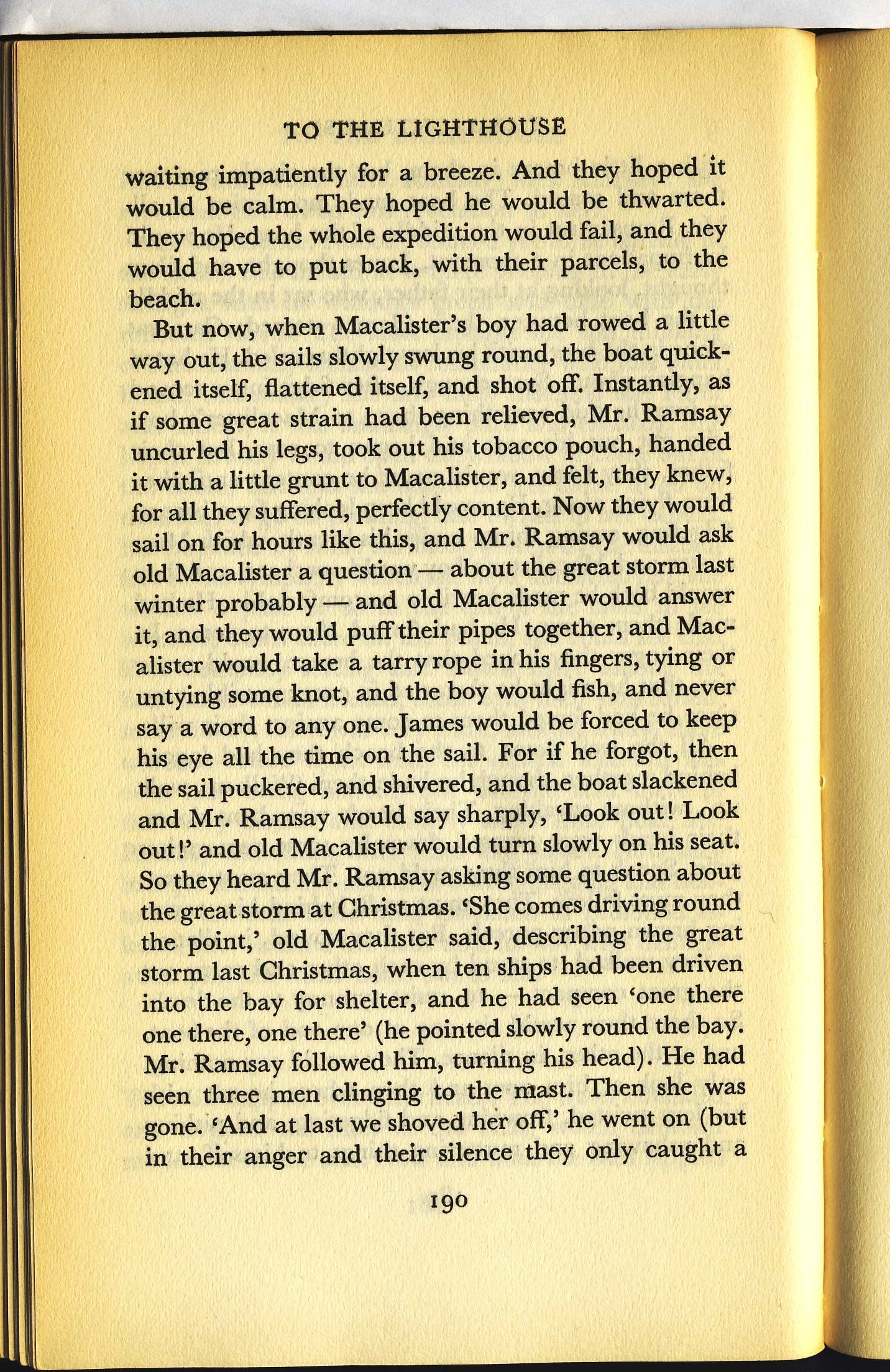
TO THE LIGHTHOUSEwaiting impatiently for a breeze. And they hoped itwould be calm. They hoped he would be thwarted.They hoped the whole expedition would fail, and theywould have to put back, with their parcels, to thebeach.
But now, when MacalisterŌĆÖs boy had rowed a littleway out, the sails slowly swung round, the boat quick-ened itself, flattened itself, and shot off. Instantly, asif some great strain had been relieved, Mr. Ramsayuncurled his legs, took out his tobacco pouch, handed
it with a little grunt to Macalister, and felt, they knew,
for all they suffered, perfectly content. Now they would
sail on for hours like this, and Mr. Ramsay would ask
old Macalister a question ŌĆö about the great storm lastwinter probably ŌĆö and old Macalister would answerit, and they would puff their pipes together, and Mac-alister would take a tarry rope in his fingers, tying oruntying some knot, and the boy would fish, and neversay a word to any one. James would be forced to keephis eye all the time on the sail. For if he forgot, thenthe sail puckered, and shivered, and the boat slackenedand Mr. Ramsay would say sharply, ŌĆśLook out! Lookout!ŌĆÖ and old Macalister would turn slowly on his seat.So they heard Mr. Ramsay asking some question aboutthe great storm at Christmas. ŌĆśShe comes driving roundthe point,ŌĆÖ old Macalister said, describing the greatstorm last Christmas, when ten ships had been driveninto the bay for shelter, and he had seen ŌĆśone thereone there, one thereŌĆÖ (he pointed slowly round the bay.Mr. Ramsay followed him, turning his head). He hadseen three men clinging to the mast. Then she wasgone. ŌĆśAnd at last we shoved her off,ŌĆÖ he went on (butin their anger and their silence they only caught a190








